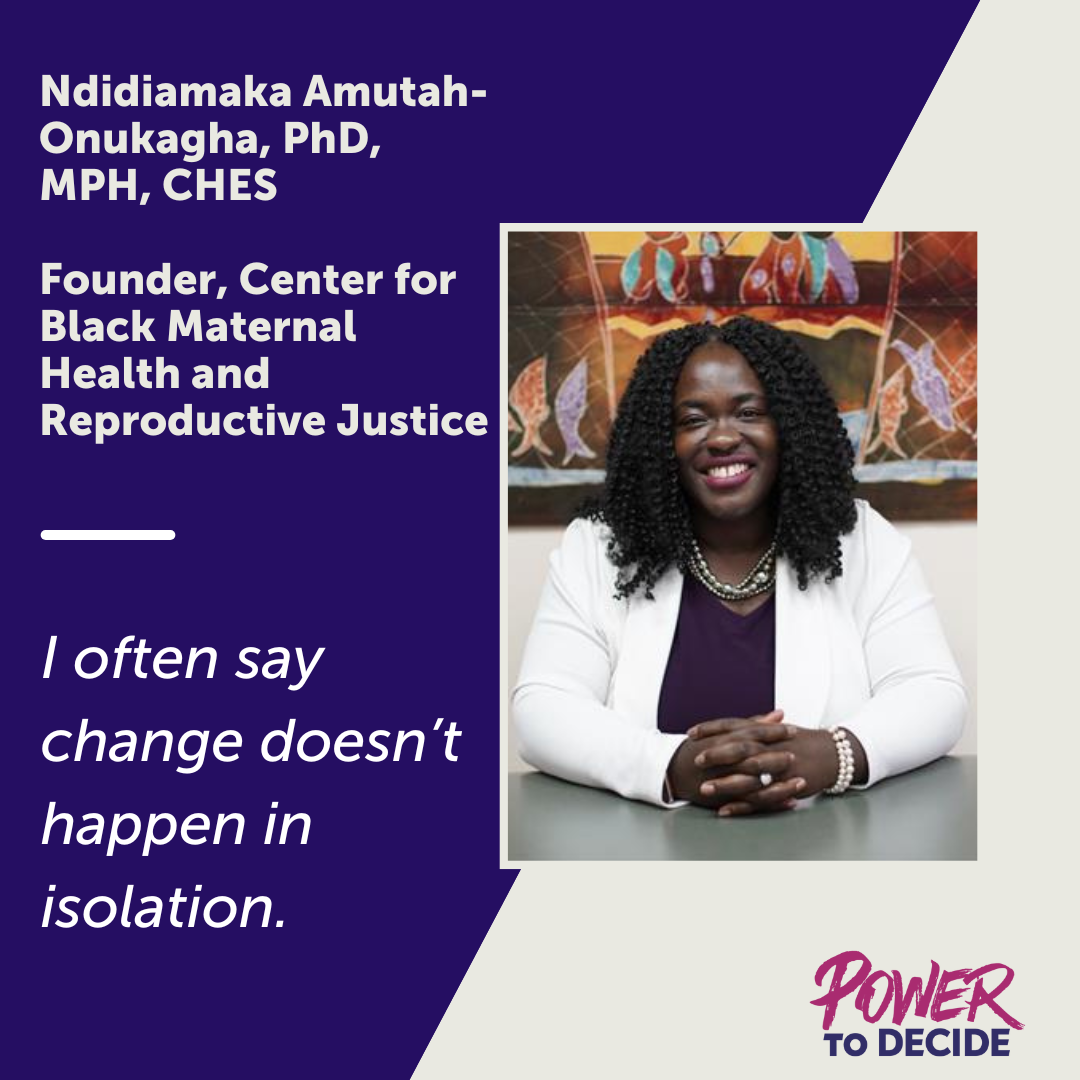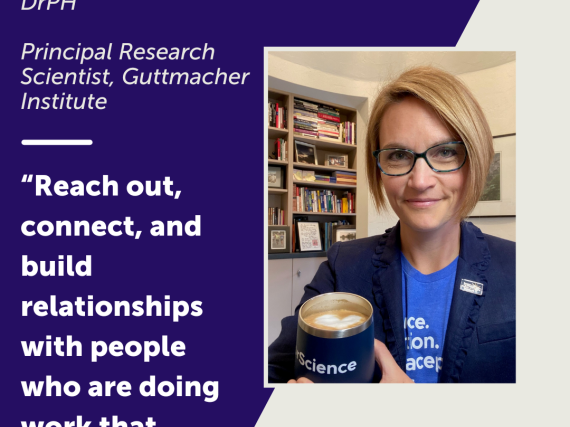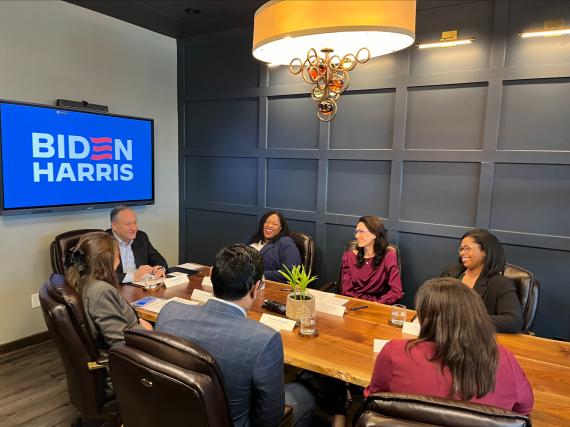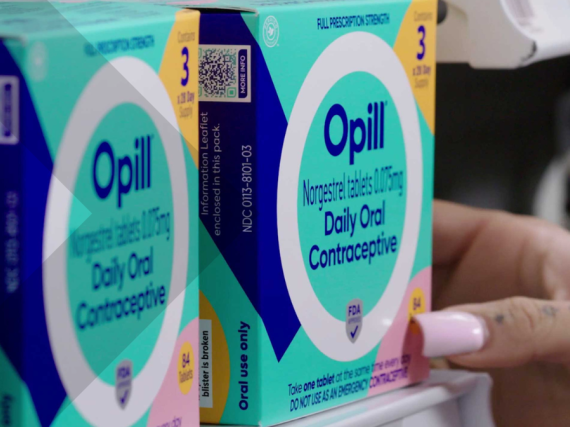December 2023 Power Player
At Power to Decide, we’re committed to uplifting the many individuals on the ground doing the work that matters most. As part of this commitment, we regularly highlight an individual who is championing the effort to support people’s reproductive well-being. Check out our newest Power Player profile.
Ndidiamaka Amutah-Onukagha, PhD, MPH, CHES (She/Her)
Julia A. Okoro Professor of Black Maternal Health at Tufts University School of Medicine Director and Founder, Center for Black Maternal Health and Reproductive Justice, and Director of the MOTHER Lab
What work have you done to ensure that all people have the information and access they need to make decisions that align with their intentions and improve their reproductive well-being?
The Center for Black Maternal Health and Reproductive Justice, for which I am the director and founder, is the only Center of its kind in the country, prioritizing research, workforce development, community engagement, and policy. Every year during Black Maternal Health week, we convene the largest maternal health conference focused on Black birthing people in the nation. Our means of providing tools, access, and resources for all people come by way of education and training for students and public health professionals; by our community involvement with midwives, doulas, and nonprofits focused on reproductive health; and by influencing and informing policymakers to support maternal and child health laws to close the gap on health disparities.
How did you get started in your field? What is your driving force?
My first experience with maternal inequities happened at the tender age of 16. Growing up in Trenton, NJ, and losing a childhood friend (who was more like a sister) suddenly after delivery, from pregnancy-related complications of lupus—a chronic autoimmune disease, prevalent in the African American community—changed me forever. It has guided the trajectory of my life and ignited the fire I have for addressing health disparities for women who look like me, walk like me, and talk like me. Black women. Women of color. All women.
Fast-forward to my experiences combating microaggressions and bias while delivering my own children and understanding that the work continues, every day, until the Black birthing experience is protected, equitable, and respected.
What advice would you give to someone looking to effect change in the field that you currently work in?
I often say change doesn't happen in isolation. It's a collaborative effort and a collective commitment to stand shoulder-to-shoulder, locked arm-in-arm with like-minded people to create a more just and equitable world.
The advice I’d give would be to find your people. There are incredible organizations needing a spark and energy to innovate and share collective genius. Educate yourself and stay close to those who can/will inform you; stay close to the root cause/problem at hand; and lobby for what you believe is fair and just.
Why should someone care about ensuring that all people—regardless of who they are or where they live—have the information and access they need to live their best life?
This is the little “I” and big “We.” By erasing maternal health disparities for Black birthing people, who are most negatively impacted, we make the system better for all birthing people.
Maya Angelou once said, “As you grow older, you will discover that you have two hands, one for helping yourself, the other for helping others.” Every human has a right to a standard of living that is suitable for health and well-being. That is a right. And, it is imperative for all of us to ensure that everyone has the opportunity to thrive in this life.
Is there a highlight of your work that you’d like to share?
I’m so proud of what the Center is accomplishing in the name of eliminating health disparities. Among our many accomplishments this year, the Center touts publishing four journal articles, writing three grants, and publishing two book chapters through our MOTHER Lab unit. We’ve also submitted testimony for abortion access in Michigan, advised on the creation of Massachusetts’ first Birthing Center with partners Neighborhood Birth Center, and were among the recipients of the Massachusetts Attorney General’s Office Maternal Health Equity Grant, where we’ll create an interactive toolkit to support doulas and enrolled MassHealth members achieve equitable doula care.



